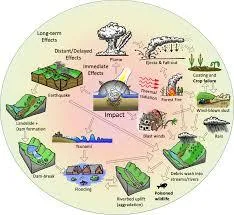
How Natural Disasters Affect Business Valuations
How Natural Disasters Affect Business Valuations
Natural disasters can turn a thriving business into a fragile one overnight. While physical damage is the most visible consequence, the financial and operational impacts run much deeper—especially when it comes to business valuation.
Whether you’re looking to sell, secure funding, or bring on investors, understanding how a disaster affects your company’s value is critical to rebuilding smart and staying resilient. In this article, we’ll explore how disasters disrupt business valuations and what steps you can take to protect your company’s worth.
1. Immediate Impacts on Business Valuation
📉 Physical Asset Losses
Flooding, fire, wind, or structural collapse can destroy property, equipment, or inventory. This directly reduces tangible asset value—an essential component of your balance sheet.
⛔ Operational Disruptions
A shutdown—whether for days, weeks, or months—leads to lost revenue, stalled productivity, and broken supply chains. This sudden change in performance will show up in trailing financials and lower your company’s value to potential buyers or lenders.
💡 Buyer and Lender Confidence
A history of disasters (especially if you're uninsured or underprepared) may raise red flags for investors or banks. They may factor in higher perceived risk, increasing your cost of capital or decreasing your business’s marketability.
2. Long-Term Value Erosion
📉 Lower Earnings Multiples
Valuations often rely on multiples of earnings (EBITDA or revenue). If a disaster drags down earnings—even temporarily—it can lower your valuation for years.
Example:
A business typically valued at 5× EBITDA might only get 3× if recent performance reflects instability or prolonged recovery.
🚫 Reputational Damage
If customers perceive a decline in service or safety, long-term revenue projections could drop, reducing forecasted cash flows used in valuation models.
🔍 Reduced Buyer Interest
Many buyers shy away from businesses that appear high-risk or require major capital investments to restore. This limits your pool of acquirers, which can drive down offers.
3. Insurance Gaps and Their Consequences
🧾 Uninsured or Underinsured Losses
If your business doesn't carry adequate insurance—or fails to claim in time—you may be responsible for recovery costs. This financial strain can result in higher liabilities and lower working capital, both of which impact valuation metrics.
⚠️ Pending Claims or Litigation
Ongoing insurance disputes or lawsuits stemming from the disaster can appear on your books as contingent liabilities. Investors and buyers often subtract these risks from the total business value.
4. How to Preserve or Regain Business Value
✅ Document Everything
After a disaster, meticulous records of damage, downtime, and recovery costs can help:
Justify losses to insurers
Inform updated financial models
Reassure stakeholders and appraisers
✅ Rebuild with Resilience in Mind
Buyers favor businesses that show disaster-readiness. Investing in prevention, continuity planning, and strong leadership during recovery can demonstrate operational strength and add to long-term value.
✅ Seek Professional Valuations
Have your business reassessed after the dust settles. A valuation expert can adjust for one-time events and explain to buyers or funders why your business remains strong.
5. How Business Networks Can Help You Rebound
Engaging with a strong network of recovery professionals—public adjusters, consultants, financial advisors, legal experts—can speed up your recovery and strengthen your positioning. These networks also connect you with:
Grant and loan programs
Business continuity services
Buyers, funders, or partners interested in rebuilding efforts
A robust support system helps reduce downtime and restore stakeholder confidence, which can go a long way in protecting your business valuation.
Natural disasters don’t just destroy physical assets—they threaten the financial core of your business. But with smart strategies and support, your business can recover and retain much of its value.
Key Takeaways:
Disasters can lower business valuations due to asset loss, reduced revenue, and investor uncertainty.
Uninsured losses and reputational damage can have long-lasting effects.
Proactive recovery, strong documentation, and expert support are key to preserving value.
How Business Networks Can Aid in Recovery
Click the "Get Assistance" button to begin the process — we are here to help!
